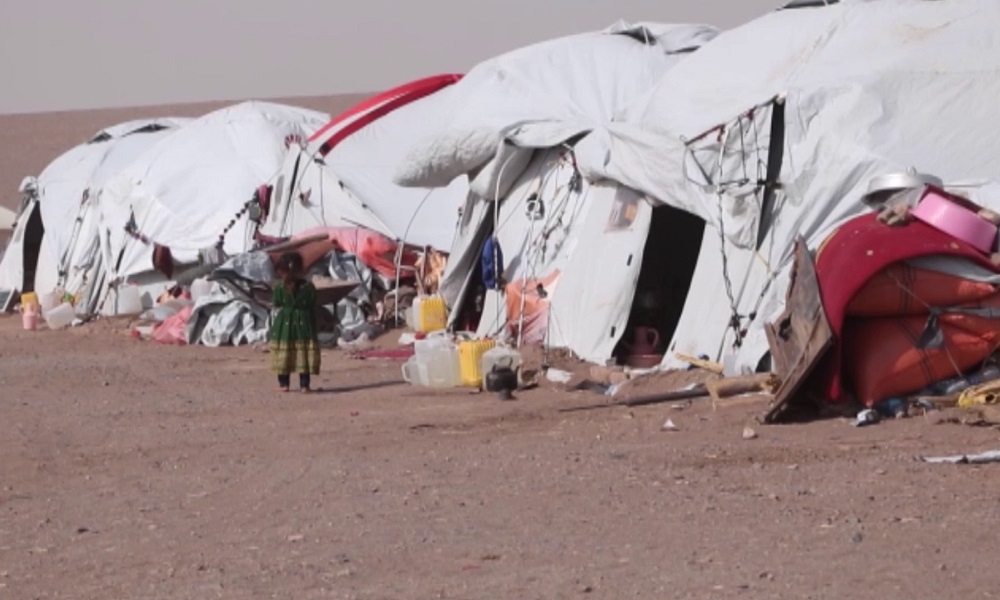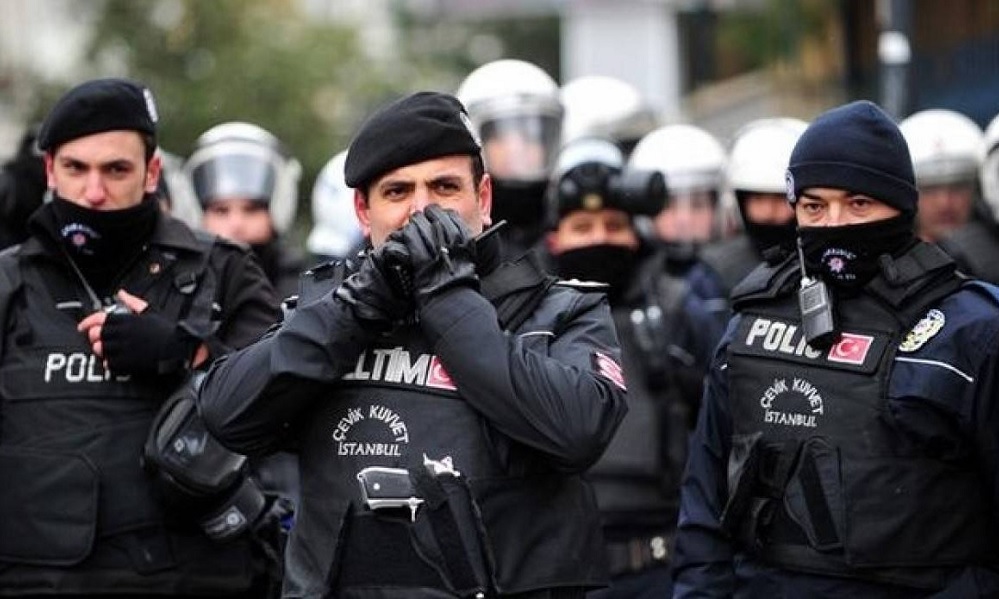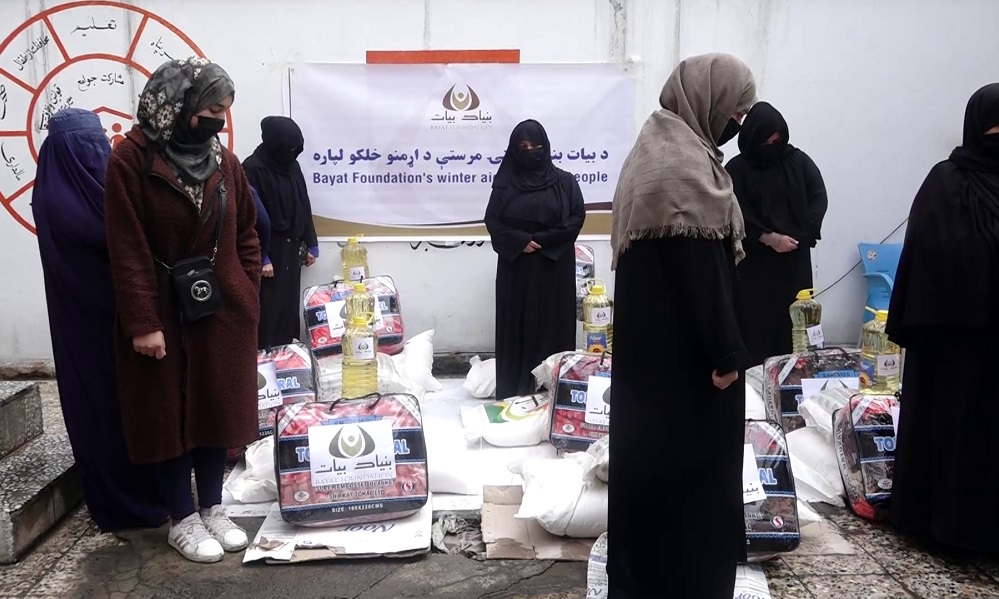Latest News
Affected families in Herat complain about lack of healthcare facilities

Families in the earthquake-affected areas in western Herat province have complained about the lack of facilities and medicine in the area.
Health teams are busy providing services in all the affected villages, but some of the earthquake victims say the assistance provided is not enough.
With winter fast approaching, children across the province are coming down with seasonal diseases, residents say. According to doctors, however, they say they have enough supplies and medicine to provide basic healthcare services.
One earthquake survivor, Ibrahim, says he was only discharged from hospital a week ago and is still in great pain. He lives in a tent after having lost his home and three brothers in the quake. While Ibrahim survived, he was seriously injured in the tremor.
“It’s been a week since I was discharged from the hospital, and they told me that you will be treated in your tent, and the doctor will provide you with anything you need,” said Ibrahim, a resident of Herat’s Zinda Jan district.
“We want our patient to be taken care of because our patient’s one arm and leg does not work,” said Maryam, a resident of Herat’s Zinda Jan district.
The string of earthquakes that rocked the area last month caused mass devastation and while government medical teams, volunteers and NGOs have been assisting the survivors, challenges have been enormous. Doctors say that all the wounded who were hospitalized in the seminary hospital are now being treated in their areas under tents.
“Since we came here, all the wounded were in the hospital, but now they have discharged the wounded from the hospital, and now the wounded are being treated and cared for in their tents,” said Ahmadjan Rahimi, the head of one of the medical teams in the earthquake-affected areas of Zinda Jan district of Herat.
But some affected families say that there are not enough facilities and medicine in these areas, and they have to transfer their patients to the hospitals in the city center.
“My son is sick here under the tent; no one gives medicine; they only give one packet of tablets, and that doesn’t really help, and I had to take my son to the city for treatment,” said Faqir Ahmad, a resident of Zinda Jan district of Herat.
Currently, health volunteer teams from the women’s and men’s departments are busy providing services in all areas affected by the earthquake. Psychologists are also working with patients with mental health problems.
“I am a vaccinator myself, I work in the vaccination department, and the vaccines that we apply here are generally the vaccines that are applied in the clinics of the city, including tetanus vaccines for women,” said Marziya Ebrahimi, a health volunteer.
“We go and check the people in every tent closely and invite and encourage people to come and participate in the meetings and use the principles of psychological counseling,” said psychologist Mohammad Elias Khairkhowa.
With the cold weather, seasonal illnesses have increased among the affected families, and doctors say that most of these patients are treated in these health centers.
Latest News
Turkish intelligence captures a Daesh member near the Durand Line

Turkish intelligence agents have captured a senior member of Daesh near the Durand Line, reportedly preventing planned suicide attacks in Turkey and other countries, according to Turkey’s state-run Anadolu Agency on Monday.
The suspect, identified as Mehmet Goren, is a Turkish citizen. He was apprehended during a covert operation and transferred to Turkey. Details on the timing of the operation or the involvement of Afghan and Pakistani authorities were not disclosed.
According to the report, Goren had risen through the ranks of Daesh and was allegedly tasked with carrying out suicide bombings in Turkey, Pakistan, Afghanistan, and Europe.
Daesh has a history of deadly attacks in Turkey, including the January 1, 2017 shooting at an Istanbul nightclub that killed 39 people.
Anadolu Agency reported that Goren’s arrest also provided intelligence on the group’s recruitment strategies and planned activities.
Latest News
Dozens of needy families in Kabul receive winter aid from Bayat Foundation

Dozens of needy families in Kabul’s fifth district have received essential winter assistance from the Bayat Foundation, as part of ongoing efforts to ease hardship during the cold season and worsening economic conditions.
According to foundation officials, the aid package includes staple food items such as flour, rice, and cooking oil, along with warm blankets to help families cope with freezing temperatures. Haji Mohammad Ismail, Deputy Head of Bayat Foundation, said the distribution began in Kabul and will soon be expanded to other provinces.
“Our assistance includes flour, rice, cooking oil, and blankets,” Ismail said. “Today, we started distributing these items in Kabul’s fifth district, and God willing, the aid will reach other provinces in the near future.”
Afghanistan continues to face widespread poverty, unemployment, and food insecurity, with many families struggling to meet basic needs, particularly during winter when access to work and heating becomes more difficult.Humanitarian organizations and charitable foundations have stepped up relief efforts to support those most affected.
Beneficiaries welcomed the assistance, describing it as a lifeline. “May God bless you for helping the poor. We had nothing and no work,” said one recipient. Another added, “Thank you for your help. Our flour was almost finished.”
Bayat Foundation officials stressed that winter aid distributions will continue in Kabul and other provinces in the coming days, as part of their broader commitment to supporting needy families across the country.
Latest News
Nearly seven million Afghan refugees return home since Islamic Emirate’s takeover

Since the Islamic Emirate came to power, approximately 6.8 million Afghans have returned home, either voluntarily or forcibly, from neighboring countries and other nations, according to the Minister of Refugees and Repatriation.
Mawlawi Abdul Kabir, speaking at a meeting on finalizing a draft plan for a permanent migration solution in Afghanistan, added that 1.3 million Afghans have been internally displaced due to natural disasters during the same period.
With winter approaching, widespread poverty and severe cold are threatening thousands of lives. Meanwhile, the forced expulsion of Afghan migrants from neighboring countries, particularly Iran and Pakistan, continues.
The Islamic Emirate has repeatedly urged neighboring states to allow migrants to return voluntarily. According to UNHCR, over two million Afghans have returned from Iran and Pakistan since the start of 2025.
-

 Latest News2 days ago
Latest News2 days agoAfghanistan signs 30-year deal for marble mining in Daikundi
-

 Latest News4 days ago
Latest News4 days agoAfghan border forces prevent illegal entry of hundreds into Iran
-

 Latest News3 days ago
Latest News3 days agoPakistan summons Afghan diplomat over deadly attack in North Waziristan
-

 Latest News3 days ago
Latest News3 days agoAfghan health minister calls for medical cooperation between Kabul and New Delhi
-

 Latest News4 days ago
Latest News4 days agoJapan allocates nearly $20 million in humanitarian aid for Afghanistan
-

 Latest News3 days ago
Latest News3 days agoKarzai urges reopening of girls’ schools and universities for Afghanistan’s bright future
-

 Health5 days ago
Health5 days agoAfghanistan seeks India’s support in standardizing traditional medicine
-

 Business5 days ago
Business5 days agoAfghanistan-Kazakhstan banking ties discussed in Kabul meeting
























